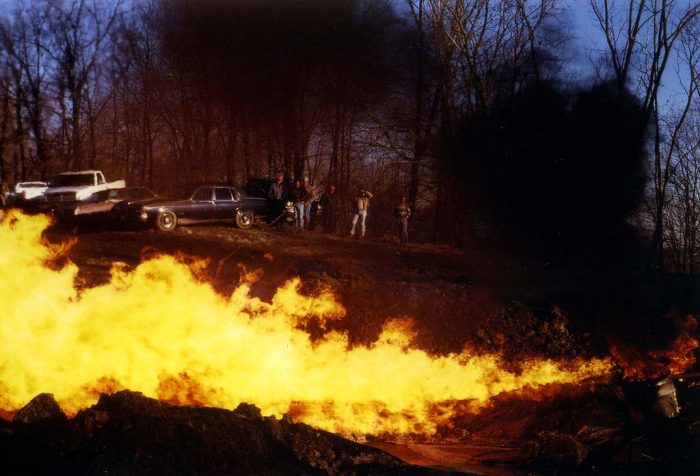Contents
Natural gas is one of the most commonly used fuel sources in the United States. Every year, Americans use about 657 billion cubic meters of natural gas in a variety of fields, from home use to agriculture and industry. We use natural gas every day of our lives. When used responsibly and with the proper precautions, natural gas is a clean, safe, and effective fuel source. But when it’s not respected, it can become very dangerous. Natural gas explosions can occur due to a variety of reasons, including:
- Dangerous Storage
- Manufacturing Error
- Dangerous Transportation
- Leaks

The Explosion Resource Center provides quality, up-to-date information about natural gas explosions. We hope to provide you with the information you need to help prevent gas explosions, and to cope with them when they happen. If you’ve been injured in a natural gas explosion, it may be helpful to discuss your case with an experienced explosion attorney.
Natural Gas Explosions in the Workplace
Natural gas is used for a variety of purposes in a wide range of industries, from agriculture to power generation to the service industry and beyond. Many workers have to use natural gas on a daily basis. If their employers do not follow the appropriate safety measures, they could be at risk for serious injury or even death.
Natural gas is highly combustible, and leaks can be incredibly dangerous. Even a small spark from a cell phone or a passing car can cause leaked gas to violently explode. Leaks can occur in a number of ways, such as:
- Improperly maintained pipes
- Broken seals
- Loose valves
When a gas explosion occurs at the workplace, the employer may ultimately be to blame for creating a dangerous work environment.
Natural Gas Explosions at Home
Gas explosions can just as easily occur in your home. If you notice a gas leak, you should immediately leave the house and contact your gas company from a neighbor’s house. Even if a gas explosion occurs in your home, it may not be your fault. The gas company may not have maintained the lines properly or there may be a construction flaw with your house that caused the leak. The Explosion Resource Center has the information you need when your home has been damaged by a natural gas explosion.
Dangerous Natural Gas Storage
Since natural gas is highly flammable, it should be stored in containers that will shield it against sparks and flames. In addition, these containers must be able to withstand great amounts of pressure, as gas may expand. While most natural gas containers have added safety measures to ensure that these situations are never problems, some individuals may store natural gas in unsafe conditions.
Dangerous Mistakes
In most cases, natural gas is stored in heavy duty metal containers. These containers, as previously mentioned, shield the gas from harmful outside conditions. However, the negligence of some individuals may negate these shielding effects.
Dangerous storage of natural gas may include:
- Storing containers in areas of high heat
- Storing gas near flames or sparks
- Failing to close containers’ release valves
- Storing gas in damaged or punctured containers
Any of these conditions may make natural gas more prone to exploding. Ideally, natural gas should be stored in new containers in cool places that are away from potential fire hazards. Additionally, containers should be closed any time they are not in use.
Natural Gas Manufacturing Error
Manufacturing natural gas is a four-step process that includes extracting, processing, transporting, and distributing gas. The entire process must be performed with care, as natural gas is highly explosive and may present a danger when mishandled. When natural gas is mishandled, individuals within the blast radius may suffer serious injuries.
The Manufacturing Process
- The first step in manufacturing natural gas is extracting it from the ground. The gas is typically pumped out of the ground directly into a central processing plant.
- Once in the processing plant, the gas is refined. In many cases, natural gas is a conglomerate of several types of gases. These individual gases are separated and harvested.
- The individual gases are then distributed either through pipelines or transportation vehicles. Before going out for transport, mercaptan, a chemical with a distinct odor, is added to the gases.
- When the gas is needed, it is transported into home through pipelines or bottled and sold, as is the case with liquid propane.
Natural Gas Leaks
Natural gas goes through a procedure of being extracted from the ground, processed into several different gases, transported to destinations across the nation, and distributed to our homes and retail centers. Throughout this long process, a simple gas leak may provide just enough fuel to cause a major catastrophe. Gas leaks can happen during any stage of the natural gas manufacturing process and may have devastating effects.
Risk Factors for Gas Leaks
Gas leaks may occur for a number of reasons in a number of places. Most often, leaks are caused by a faulty gas line installation or a failure to monitor and inspect gas pipes. In both cases, negligence may be to blame for explosions and injuries resulting from the leak.
Gas companies are typically responsible for monitoring lines and pipes. Depending on which specific process suffers the leak, the gas company may be the one that is extracting the gas, processing it, transporting it, or distributing it.
Before pursuing legal action, it is important for injury victim to consult with an experienced attorney so that blame can be assigned to the correct party.
Contact Us
A natural gas explosion can change your life in an instant, but you don’t have to face these challenges alone. If you’ve been injured or worse in a natural gas explosion accident, contact explosion attorneys.